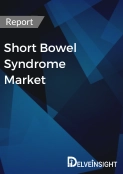Short Bowel Syndrome (SBS) is a rare yet severe gastrointestinal disorder that occurs when a significant portion of the small intestine is removed or becomes dysfunctional, leading to serious nutrient absorption issues. Managing SBS often requires specialized interventions, including nutritional support, pharmaceutical treatments, and, in advanced cases, surgical procedures like intestinal transplantation. The Short Bowel Syndrome Treatment Market has been experiencing steady growth, driven by ongoing research, innovative drug development, and rising awareness about the disease.
Short Bowel Syndrome Drugs Market Overview
The Short Bowel Syndrome Drugs Market is expanding due to increased diagnosis rates and the availability of targeted therapies. Factors such as technological advancements in treatment, rising clinical research activities, and the growing number of patients needing long-term care contribute to this market’s growth. Healthcare providers and pharmaceutical companies are continuously investing in advanced therapeutic approaches to enhance patient outcomes and improve quality of life.
Key Approaches in the Short Bowel Syndrome Treatment Market
Treatment options for SBS focus on symptom management and enhancing nutrient absorption, including:
-
Parenteral and Enteral Nutrition (PN & EN): These are essential for patients with severe malabsorption, with continuous advancements improving safety and effectiveness.
-
Pharmacologic Therapies: Targeted therapies, such as GLP-2 analogs, are helping patients by promoting intestinal adaptation and reducing dependency on parenteral nutrition.
-
Surgical Interventions: In severe cases, small bowel transplantation or bowel-lengthening procedures can be necessary.
Market Drivers and Challenges
Drivers:
-
Increasing prevalence of SBS, partly due to higher survival rates among premature infants and patients undergoing major bowel surgeries.
-
Advancements in drug development that improve patient outcomes and decrease reliance on parenteral nutrition.
-
Ongoing research and clinical trials boosting the Short Bowel Syndrome Drugs Market.
-
Government support and favorable reimbursement policies enhancing access to treatment.
Challenges:
-
High costs of treatment, particularly for parenteral nutrition and biologic therapies, restricting accessibility.
-
Limited disease awareness and delayed diagnosis, leading to suboptimal management.
-
Long-term treatment complications, including catheter-related infections and liver disease.
Leading Short Bowel Syndrome Companies
Several pharmaceutical companies play a key role in the development and commercialization of SBS treatments, shaping the market landscape. Major Short Bowel Syndrome Companies include:
-
Takeda Pharmaceutical Company
-
Zealand Pharma
-
VectivBio Holding AG
-
9 Meters Biopharma
-
Hanmi Pharmaceutical
-
Nestlé Health Science
-
Merck & Co., Inc.
These companies are investing in new drug formulations, strategic partnerships, and global expansion to improve the availability of SBS treatments.
Regional Market Insights
-
North America: Leading the market with advanced healthcare infrastructure, strong research funding, and a high prevalence of SBS.
-
Europe: Market growth is driven by key pharmaceutical players and favorable reimbursement policies.
-
Asia-Pacific: Increased healthcare investment and growing disease awareness are contributing to market expansion.
-
Rest of the World: Growth is slower due to limited treatment access and high costs.
Future Prospects
The Short Bowel Syndrome Treatment Market is expected to expand with several emerging trends:
-
Increased investment in gene therapy and regenerative medicine.
-
Advancements in microbiome-based therapies to enhance intestinal adaptation.
-
Growth in clinical trials and innovative drug pipelines.
-
AI-driven innovations in parenteral and enteral nutrition management.
Conclusion
The Short Bowel Syndrome Drugs Market is undergoing significant transformation, driven by advancements in treatment, ongoing research, and key pharmaceutical developments. Despite challenges like high treatment costs and limited awareness, the market is set for continued growth due to increasing disease prevalence and improved healthcare access.
Top List Offrered By Delveinsight
stages of psoriatic arthritis | hunter's disease in adults | omilancor | medication major depressive disorder | allos therapeutics stock ticker | acrocallosal syndrome | lilly dermatology products | epkinly drug | belimumab mechanism of action | postmonarch asco 2024 | methicillin-resistant staphylococcus aureus stages | alopecia drug treatment | is keratoconjunctivitis contagious | vorasidenib cost | future trends in healthcare industry | janssen drugs | mtor inhibitor drugs | shionogi pipeline | keytruda for prostate cancer | what is john cunningham virus | nexobrid fda approval | ai health assistant | mesopher | mg awareness month | bbp-631 | gastroparesis prevalence | tak279 | lipoprotein lipase deficiency lpld | rybelsus approval | john cunningham virus jcv | pompe syndrome symptoms
About Delveinsight
DelveInsight is a trusted provider of life sciences and pharmaceutical market research and consulting, offering actionable insights that empower organizations to make informed decisions. With a commitment to delivering strategic intelligence, DelveInsight serves as a key partner to global pharmaceutical, biotechnology, and healthcare companies looking to excel in an evolving market landscape.
Contact Us
Kanishk
kkumar@delveinsight.com

